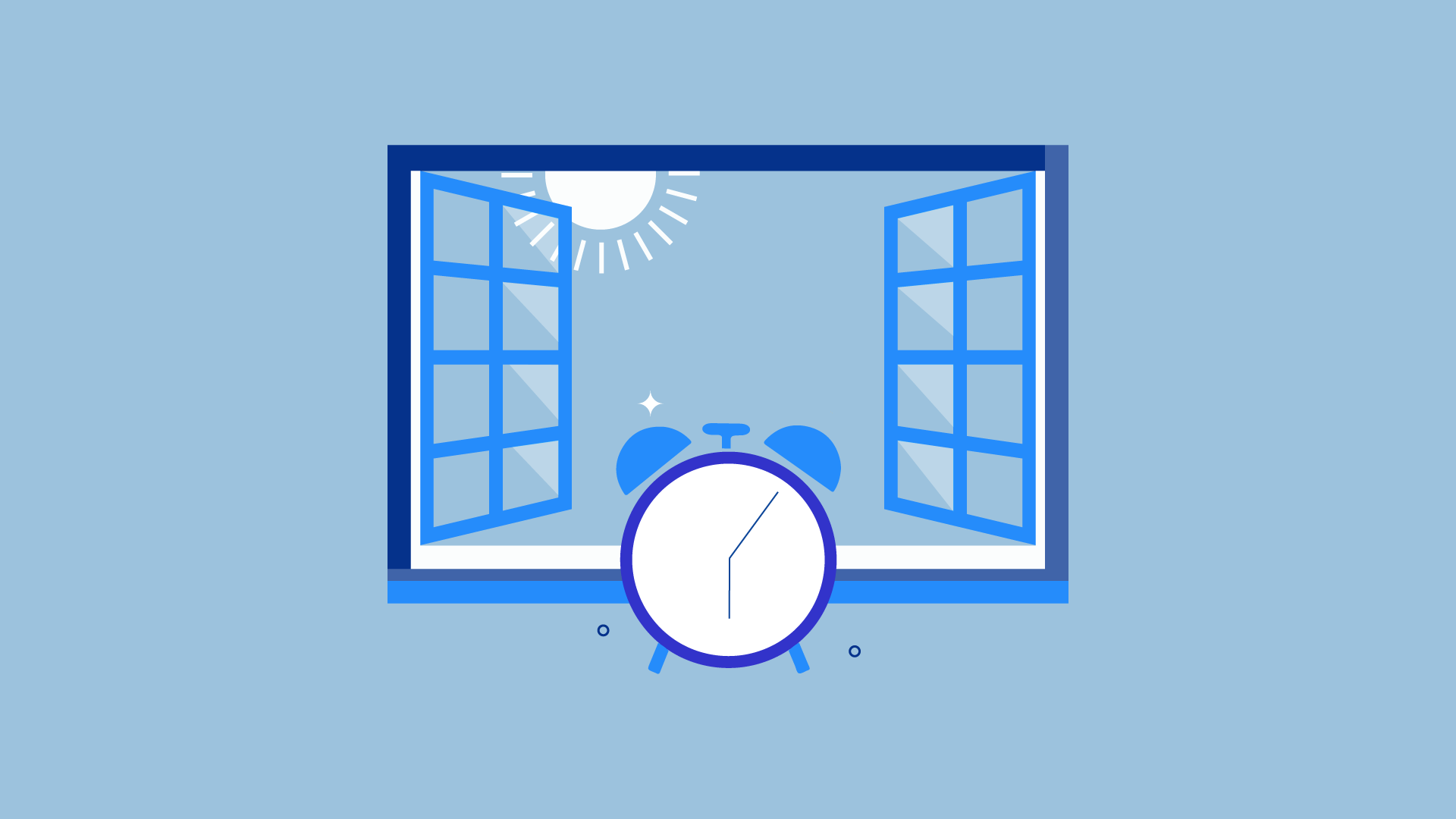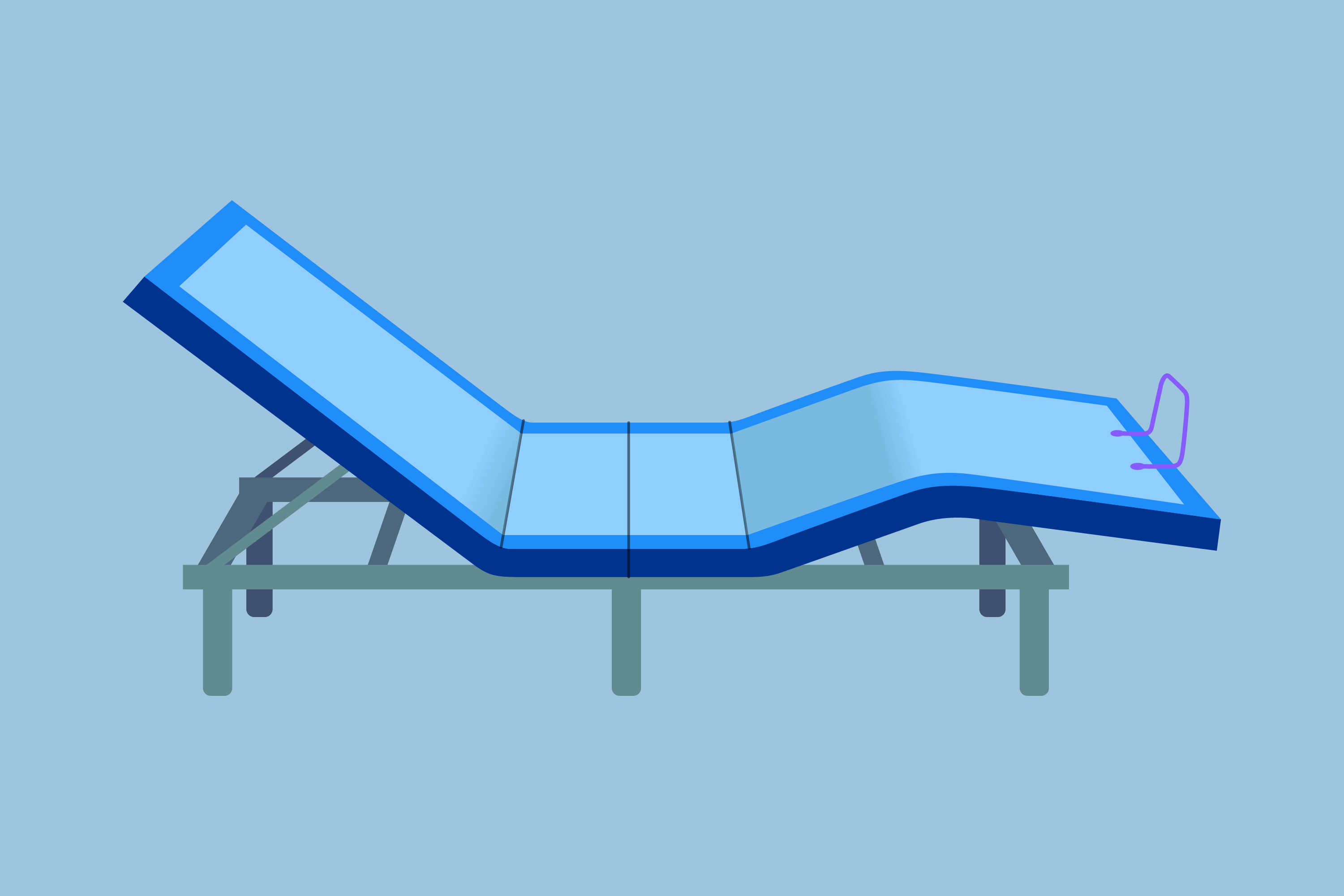Key Takeaways
- Prioritize Consistent Sleep: Maintain a regular sleep schedule by going to bed and waking up at the same time every day, even on weekends. This helps synchronize your circadian rhythm and maximizes your energy levels. Ensure you are getting enough sleep according to your age group’s recommended hours.
- Embrace Natural Light: Exposure to natural light in the morning is crucial for resetting your internal clock. Open curtains or spend time outside to get direct sunlight within an hour of waking up. Stretching or light exercise in the morning sunlight can also wake up your muscles, increase circulation, and reduce stiffness.
- Ditch the Snooze Button: Resist the urge to hit the snooze button repeatedly. Instead, set your alarm for the same time every day and get out of bed immediately when it goes off. Placing the alarm across the room can help you resist snoozing.
Getting out of bed while you’re still exhausted might be challenging, especially if you have a strict daily schedule to keep. And with extended stretches of grogginess ahead of you, the exhaustion might feel even more overpowering. However, you workaround: these ideas and tactics for waking yourself up will provide you with the energy you desire without caffeine (nothing against caffeine, but you are likely already aware of this method).
Of course, the best method to avoid feeling weary is to avoid exhaustion altogether by obtaining a good night’s sleep. Aside from achieving the recommended seven to nine hours of sleep every night, it’s critical to maintain excellent sleep hygiene.
To give yourself the best odds for a good night’s rest, try sleeping in a dark room at a slightly cool but moderate temperature on a comfortable bed. Also, avoid excessive computer and screen time and stop eating at least two hours before bed.
But if you’ve spent enough time in your dreams and still feel tired in the morning, there are certain things you can do. Whether you’re attempting to get out of bed in the morning or avoid napping at your desk, these 14 expert-approved methods for how to get up when tired can help.
14 Ways to Jolt Yourself Awake
Shower in Cold Water
Nothing wakes you up like a splash of ice-cold water. For some, it’s the secret to being a morning person. To wake yourself up, take a cold shower to raise your heart rate, blood pressure, and metabolism.
This is simple to include in your morning routine if you’re feeling drowsy or even while working from home at midday. The effects are directly related to the amount of time in cold exposure. If you throw some cold water on your face, it’s very different from taking a cold shower for two to three minutes, which energizes you.
Maintain a Regular Sleep Schedule
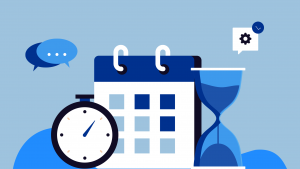 If you consistently stay up later on weekends than during the week, you may suffer from
social jet lag.
Verified Source
National Library of Medicine (NIH)
World’s largest medical library, making biomedical data and information more accessible.
View source
This is why many feel tempted to sleep in later on weekends, even if it can make it difficult to maintain a consistent schedule throughout the week.
If you consistently stay up later on weekends than during the week, you may suffer from
social jet lag.
Verified Source
National Library of Medicine (NIH)
World’s largest medical library, making biomedical data and information more accessible.
View source
This is why many feel tempted to sleep in later on weekends, even if it can make it difficult to maintain a consistent schedule throughout the week.
However, going to bed and waking up at the same time every day helps to keep your circadian rhythm appropriately synchronized, which maximizes your energy levels. Follow good sleep habits and practice good sleep hygiene to ensure you can fall asleep quickly each night.
“Sleep is one of the most observable circadian rhythms,” says Dr. Nayantara Santhi. “Both sleep and and our circadian rhythms change with aging. As we get older we go to sleep and wake up earlier. Changes in circadian physiology such as an advanced timing of the core body temperature, melatonin and cortisol rhythms, contribute to this.”
“In older adults, the time of their core body temperature minimum and melatonin onset occur later with respect to sleep, so, they don’t just sleep at an earlier clock time, but do so at an earlier biological time.”
Open the Drapes for Bright Light
 Natural light in the morning is required by your body to reset your internal clock. Open the curtains to begin your day and get at least a few minutes of sunlight as soon as you wake up, but remember that filtered sunlight is insufficient.
Natural light in the morning is required by your body to reset your internal clock. Open the curtains to begin your day and get at least a few minutes of sunlight as soon as you wake up, but remember that filtered sunlight is insufficient.
The optimal exposure is with direct sunshine. Try to head outside for a stroll or eat breakfast on the terrace within an hour of waking up to take advantage of the benefits of morning sunlight.
End the Snooze Button
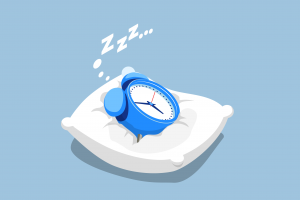 That extra eight minutes of sleep does you no good, physically or emotionally. Ten to fifteen minutes of spare nap time immediately after waking up can make you feel groggier, and might make you grumpy. So overall, hitting the snooze button can be worse for your morning.
That extra eight minutes of sleep does you no good, physically or emotionally. Ten to fifteen minutes of spare nap time immediately after waking up can make you feel groggier, and might make you grumpy. So overall, hitting the snooze button can be worse for your morning.
To counteract this, set your alarm clock for the same time every day. As soon as your alarm goes off, get out of bed, stretch, and begin your preparation routine. If you’re still tempted to smash that snooze button, place your alarm on your dresser across the room or outside your bedroom door, forcing you to get up and turn it off. Some people put the alarm in the bathroom; that way, they are already in the shower to turn it off.
Place Your Alarm Clock Across the Room
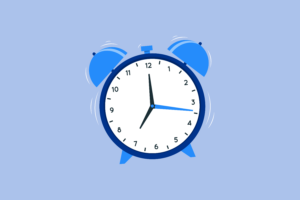 As we mentioned in the previous tip, there’s a reason we recommended this wake-up method before: it works. Putting your alarm clock or phone out of reach forces you to get out of bed immediately before you’re tempted to click snooze.
As we mentioned in the previous tip, there’s a reason we recommended this wake-up method before: it works. Putting your alarm clock or phone out of reach forces you to get out of bed immediately before you’re tempted to click snooze.
The fragmented sleep you receive between snoozing isn’t quality sleep and might make you more agitated than if you woke up with your initial alarm. So, while it may not feel optimal right now, your energy levels for the remainder of the day will be improved.
Drink a Big Glass of Water

While it may be tempting to turn on your coffee maker first thing in the morning, head straight for a glass of water instead. Sleeping for hours (and therefore not ingesting any fluid) dehydrates your body. Having a glass (or two) of water helps kick-start your hydration for the day.
Set a bottle next to your bed or a glass in front of your coffee machine as a gentle reminder to rehydrate properly before your morning cup of joe. Remember, good hydration is key to sleeping well.
Stretch
After six to eight hours of inactivity, our bodies want movement. Stretch in the morning to loosen connective tissue accumulation in your muscles and minimize stiffness. It helps your body wake up by increasing circulation and minimizing discomfort.
You can even add a few mindfulness exercises to your stretching routine, taking a few moments of reflection and relaxation before you begin your day.
Get Up and Go
Getting outside within 20 minutes of waking up and soaking in at least 15 minutes of sunlight is a terrific method to wake up and remain alert. The morning walk calms you and lowers stress with something called optic flow. Verified Source ScienceDirect One of the largest hubs for research studies and has published over 12 million different trusted resources. View source
Going outside in your yard or having a morning walk around the neighborhood is all it takes.
Stick to Your Chronotype
Some folks are early birds or night owls. Knowing your chronotype is extremely helpful for scheduling your day’s work around your productivity windows so you can accomplish all you want while still having the energy to do it well.
Waking up early to seize the day may seem like the obvious solution, but it can be easier said than done. Determine your chronotype group and plan your sleep and wake periods appropriately.
Make Your Bed
Making your bed every morning has a few advantages. The first is a sensation of success—you’ve only been up for a few minutes yet have already completed one of your tasks.
In addition, fluffing your pillows and ironing your linens may weaken your case for crawling back under the covers. The more primped and primed your bedding, the more probable it is that you will stay awake and leave your bedroom.
Plus, the steps of making your bed don’t have to be super complicated. You can just pull up the sheets and blanket so they lie flat, and place your pillows in a nice arrangement at the head of the bed. This can take only a few minutes, leaving you plenty of time to accomplish other things in the morning.
Get Some Exercise
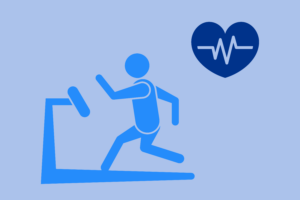
Endorphins not only make you joyful, but they also make you alert. Instead of saving your sweat session for after work, add some form of activity into your everyday morning routine to assist you in waking up.
However, it’s critical to discover workouts that you love and look forward to performing every day, so figure out what works best for you—walking, jogging, strength training, and so on—and get going. As a bonus, regular exercise helps you sleep better at night, while still energizing you during the day.
Experiment with Earthing
Earthing, also known as grounding, entails taking off your shoes and placing your bare feet on the soil. Standing, sitting, or walking on the ground, feeling the grass and dirt beneath your feet and against your skin, can be good for your mental health and help you feel in tune with the world around you. Just be careful about where you place your feet!
Try Aromatherapy
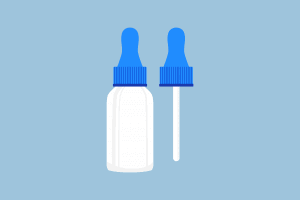 Caffeine smells appealing to some individuals, though you want to keep it out of the bed to avoid cleaning up coffee stains from your mattress.
Caffeine smells appealing to some individuals, though you want to keep it out of the bed to avoid cleaning up coffee stains from your mattress.
Others require a different aroma to wake up their senses. This is where aromatherapy Verified Source National Library of Medicine (NIH) World’s largest medical library, making biomedical data and information more accessible. View source comes into play.
Certain essential oils can also aid in the promotion of mental clarity. Rather than grabbing a cup of coffee as soon as you open your eyes, consider diffusing oils like lemon, peppermint, and frankincense to help you wake up.
Start Your Day with a High-Protein Breakfast
Smoothies, omelets, quinoa porridge, and nut butter toast are all examples of protein-rich meals that will satisfy your taste buds and feed you for the day ahead. Eat breakfasts with protein and healthy fats to keep you full, content, and energized until lunch. Some find that larger breakfasts and lunches make it easier to cut back on eating before bed.
You want to save a protein shake before bedtime, though, due to the benefits it can offer for muscle growth during sleep.
Frequently Asked Questions
Is 6 hours of sleep enough?
Adults require seven to eight hours of sleep every day. The Centers for Disease Control and Prevention (CDC) defines short sleep Verified Source Centers for Disease Control and Prevention (CDC) The United States’ health protection agency that defends against dangers to health and safety. View source as fewer than seven hours each night, stating that six hours of sleep is insufficient for most individuals. However, too little sleep is still better than no sleep, so the occasional night of six hours is okay.
Why do I struggle to wake up?
If you find you struggle to wake up early enough, the trouble is likely that you are not getting enough sleep to wake up at your desired time. Some of the best methods to be a morning riser are to stick to a strict schedule and help them sleep earlier. For the mornings themselves, place an alarm away from the bed and have bright natural light illuminate the bedroom.
Why do I sleep through my alarms?
Consistently sleeping through your alarm could be a sign that you’re not getting enough sleep. With a circadian rhythm disorder, Verified Source National Library of Medicine (NIH) World’s largest medical library, making biomedical data and information more accessible. View source also known as a sleep-wake cycle disorder, your internal clock is out of sync with your environment. In either case, if your body feels the need to sleep a significant amount more, your brain may tune out the sound of your alarm.
Do naps count as sleep?
Yes, naps count as sleep. If you take a morning nap, you will predominantly experience circadian-dependent REM sleep. Napping later in the evening, on the other hand, when your sleep urge builds, will result in more deep sleep in the NREM stages. This, in turn, may interfere with your ability to sleep at night. Napping late in the afternoon or evening is therefore discouraged.
How much sleep do I need by age?
According to the CDC, Verified Source Centers for Disease Control and Prevention (CDC) The United States’ health protection agency that defends against dangers to health and safety. View source here are the proper amounts of sleep by age:
- Newborns (0–3 months) need 14–17 hours in a day
- Infants (4–12 months) need 12–16 hours in a day
- Toddlers 1–2 years old need 11–14 hours in a day
- Preschoolers 3–5 years old need 10–13 hours in a day
- Children 6–12 years old need 9–12 hours in a day
- Teens 13–18 years need 8–10 hours in a day
- Adults 18–60 years old need 7 or more hours per night
- Adults 61–64 years old need 7–9 hours per night
Conclusion
The key to getting up and staying awake when all you want to do is go back to bed is to determine your chronotype (are you an early bird or a night owl?) and devise a sleep regimen and bedtime routine appropriate for your body. This will guarantee that you receive adequate REM sleep.
Getting into a regular sleep schedule (relaxation methods and good habits) and practicing good sleep hygiene might even lead to your body adapting to its schedule so well that you naturally wake up and fall asleep at the right time.
About the author
Eric Ridenour is a health and wellness writer with a strong focus on sleep and nutrition. With a background in health science and psychology, Eric has a deep understanding of the connection between sleep and overall well-being. His expertise has been sought by various businesses and individuals, and his work has been featured in reputable publications such as Thrive Global, Drug Report, and Authority Magazine. Eric's commitment to promoting better sleep and comprehensive wellness is evident in his writing and consultations. He is a published author working on his second book.
View all posts